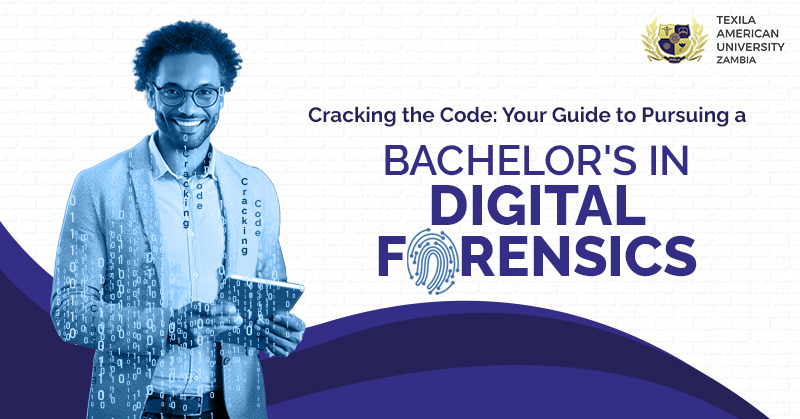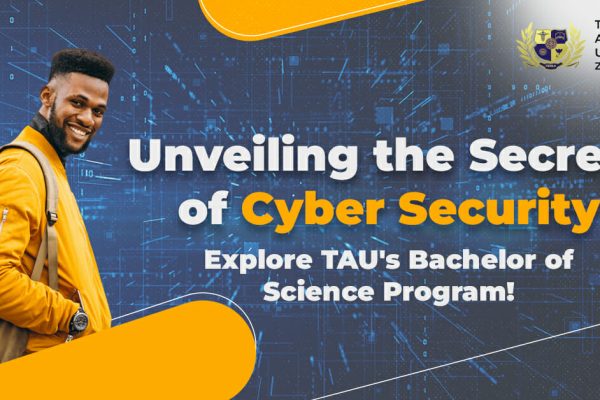|
Tired of Reading? Please listen to the blog
|
Blog Summary
Explore the top digital forensics programs and courses, ensuring the curriculum aligns with your career goals. Research reputable institutions offering a Bachelor’s in Digital Forensics, considering factors like faculty expertise and accreditation. Evaluate program details, including specializations and hands-on learning opportunities. Prepare a robust application highlighting your passion for digital forensics. Explore funding options to support your education. Take proactive steps towards a rewarding career in this dynamic field.
Introduction
Brief Overview of digital forensics as a field
Digital forensics involves investigating and analyzing digital devices and data to uncover evidence for legal purposes. It plays a crucial role in solving cyber crimes, protecting digital assets, and ensuring legal compliance in today’s technology-driven world. According to the (IC3) FBI’s Internet Crime Complaint Center, cybercrime complaints increased by 69% from 2019 to 2020, highlighting the critical need for proficient digital forensic investigators.
Importance of choosing the right program for pursuing a Bachelor’s in Digital Forensics
Selecting the right Bachelor of Science program in digital forensics is vital for aspiring professionals. It not only shapes their educational journey but also influences their career prospects and opportunities for growth in this rapidly evolving field.
Understanding Digital Forensics
Definition and scope of digital forensics
Digital forensics encompasses the techniques, methodologies, and tools used to recover, analyze, and present digital evidence in legal proceedings. It covers various digital devices, including computers, smartphones, tablets, and networks. As of 2022, the global digital forensics market is predicted to reach $11.6 billion by 2027, reflecting the growing demand for digital investigation services across various industries (source: Market Research Future).
Applications and significance in today’s digital landscape
In today’s interconnected world, digital forensics is indispensable for combating hacking, data breaches, intellectual property theft, and online fraud. It also aids in incident response, compliance audits, and ensuring data integrity for organizations across various sectors.
Why Pursue a Bachelor’s in Digital Forensics?
Career opportunities and demand in the field
The increasing reliance on digital technologies has resulted in a surge in demand for trained digital forensics professionals. Graduates with a BSc in Digital Forensics can pursue diverse career paths in law enforcement agencies, government organizations, cybersecurity firms, consulting companies, and corporate security departments. The U.S. Bureau of Labor Statistics (BLS) expects a 31% increase in employment of information security analysts; from 2020 to 2030, the demand for digital forensic professionals is set to skyrocket, outpacing the typical growth rate for all professions.
Impact of digital forensics on cybersecurity and law enforcement
Digital forensics strengthens cybersecurity measures and supports law enforcement agencies investigating cybercrimes. Professionals with specialized training in digital forensics are instrumental in safeguarding digital assets, prosecuting offenders, and upholding justice in the digital realm.
Exploring Digital Forensics Programs
Overview of top digital forensics programs
Factors to consider when choosing a program
When evaluating digital forensics programs, prospective students should consider factors like curriculum quality, faculty expertise, and industry partnerships. A study by Burning Glass Technologies found that 61% of cybersecurity job postings prefer or require a bachelor’s degree, emphasizing the value of accredited programs in digital forensics (Source: Burning Glass Technologies). Hands-on learning opportunities and alums success stories.
Reputation and accreditation of institutions offering BSc in Digital Forensics
Choosing a program offered by reputable institutions that hold accreditation from recognized accrediting bodies is essential. Accreditation ensures the program meets rigorous academic standards and prepares students for the profession’s demands.
Comparison of digital forensics courses offered in various programs
Core curriculum and elective courses
Digital forensics programs typically cover core topics such as computer forensics, network forensics, mobile device forensics, forensic data analysis, and legal aspects of digital investigations. Elective courses may focus on specialized areas like malware analysis, incident response, cryptography, and forensic accounting.
Specializations and concentrations available
Some digital forensics programs offer specializations or concentrations tailored to specific career paths or industry sectors. These may include cybersecurity forensics, forensic accounting, e-discovery, law enforcement investigations, or digital forensics management.
Steps to Finding the Best BSc in Digital Forensics Program
Researching available programs
Prospective students should conduct thorough research to identify best digital forensics course that align with their academic interests, career goals, and personal preferences.
Evaluating program curriculum and faculty expertise
Reviewing the curriculum structure, course offerings, and faculty qualifications is crucial to ensure the program provides comprehensive education and practical skills relevant to the field.
Considering factors such as location, cost, and flexibility
Other factors to consider are the program’s location, tuition fees, financial aid options, internship opportunities, campus resources, and flexibility in scheduling or online learning options.
Seeking advice from professionals or alums in the field
Engaging with current students, alumni, industry professionals, or academic advisors can provide beneficial insights into the strengths and weaknesses of different digital forensics courses.
Application Process and Requirements
Common prerequisites for admission to digital forensics programs
Typical admission requirements might include a high school diploma or equivalent, standardized test scores (like SAT or ACT), letters of recommendation, a personal statement or essay, and an interview.
Tips for preparing a robust application
In their application materials, prospective students should highlight their academic achievements, relevant extracurricular activities, work experience, passion for digital forensics, and career aspirations.
Understanding the admissions process and deadlines
It’s essential to familiarize oneself with the application deadlines, submission requirements, and additional admission procedures specific to each digital forensics programs.
Funding Your Education
Scholarships, grants, and financial aid options for digital forensics students
Students pursuing a BSc in Digital Forensics can explore various funding sources, including scholarships, grants, fellowships, tuition assistance programs, work-study opportunities, and student loans. As per the U.S. Department of Education, the typical annual tuition and fees for a bachelor’s degree in computer science and related fields were $10,560 for public institutions and $37,650 for private institutions in the 2020-2021 academic year.
Researching tuition costs and exploring funding opportunities
Before committing to a program, it’s essential to assess the total cost of attendance, including tuition, fees, housing, books, and other expenses, and explore available funding options to minimize financial burden.
Conclusion
Recap of key points discussed
Choosing the best BSc program in digital forensics requires careful consideration of factors like curriculum quality, faculty expertise, industry relevance, location, cost, and funding opportunities.
Encouragement to take the following steps towards pursuing a Bachelor’s in Digital Forensics
Prospective students are encouraged to take proactive steps in researching, evaluating, and applying to top digital forensics program that closely meet their academic and career aspirations.
Final words of advice for prospective students
Aspiring digital forensics professionals can begin a rewarding journey towards a successful career in this dynamic and impactful field by investing time and effort in finding the right program and diligently pursuing their educational goals.
“Dreaming of a career in digital forensics? Texila American University can make it a reality! Click here to apply now!“











